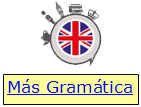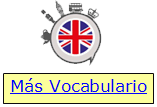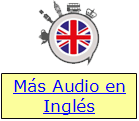|
Gramática: MUST and HAVE TO
In Episode we covered may and might.
How about MUST and HAVE TO?
MUST and HAVE TO are more or less the same for obligation.
Tomorrow Craig will have to get up at half past seven (tendrá que…)
(to jump the gun = saltarse)
“Have you got to correct exams?” (“Do you have to correct exams?”)
Craig doesn’t have to correct many exams, but he has got to correct a
few exams.
“Must we always mention Mickey Mouse in every episode?”
I really must stop smoking.
She’s going to live in the UK. She will have to learn to drive on the
left. – Tendra que aprender conducir por la izquierda.
The decision of the speaker to use “must” or “have to” often depends on
the internal obligation the speaker feels.
“Reza’s coming to my house and there’s no milk in the fridge. I MUST get
some milk.” (Strong internal obligation).
The grammar of must:
“Must you smoke in here?” (Do not use “do”, or other auxiliary verbs, to
make questions with modal verbs)
Use “not” for the negative – “You mustn’t (must not) eat in here.” /
“You mustn’t smoke in bed.”
Modal verbs like ‘must’ are not followed by the infinitive – “I must buy
bread.”
There is no past form of must (for obligation). The past of “You must do
your homework.” is “You had to do your homework.”
Use “will have to” for future obligation. “You will have to do your
homework.”
Vocabulary Corner: Sport
Sport verbs:
to play – a game, an opponent, a team
to beat – someone, a record
to win – a game, a competition
to score
to take part in
Does Reza like sport? Not really, but he admires people who are. He
wishes he were sporty. – Ojala que fuera más deportista.
Reza likes the World Cup. Reza and Craig would like Spain to win the
World Cup. Although Craig would prefer England to win.
football – referee = el árbitro, linesmen = juez de línea, foul = falta,
offside = fuera de juego, to score (a goal), pitch, to show someone the
yellow/red card, (“Hold your horses!” = ¡Espérate! o Cálmate), to book a
player, to send a player off (an early shower)
tennis – court, racket, umpire, to serve, 15-love (nil – football), 40 –
40 = deuce.
golf – course, club, to swing, to get a hole in one
boxing – ring (ice-skating rink = pista de hielo) wrestling = lucha. to
punch = dar un puñetazo, referee, athletics – track and field events,
the javelin, high jump, long jump, triple jump, hurdles
Idioms:
What is an idiom? – A combination of words that has a figurative meaning
because of its common usage . An idiom’s figurative meaning is separate
from the literal meaning.
Example: It’s raining cats and dogs – It’s raining a lot. Very heavy
rain. (Native speakers do not often use this idiom).
To throw out the baby with the bath water – This idiom comes from a
German proverb, “Das Kind mit dem Bade ausschütten“. First used in 1512,
(to get rid of the good parts as well as the bad parts of something when
you are trying to improve it)
“When the government reforms something, like education, they often throw
out the baby with the bathwater.”
“In for a penny, in for a pound” = de perdidos al rio.
To go the whole hog (cerdo) – to do something as completely as possible.
I needed to change the hard drive in my computer, so I went the whole
hog and bought a new computer. In for a penny, in for a pound!
“A big girl’s blouse.” – A man who is soft or weak. “You’re a pansy.”
“A pig with lipstick is still a pig.” – Aunque la mona se vista de seda,
mona se queda. – try to make something more attractive than it is – For
example, a cheap car with a very good and expensive stereo, seat covers
etc.
“(To be) as high as a kite (cometa) – to be stoned, colgado. After
drinking all that whisky, Reza was as high as a kite. “To be out of it.”
 *Dispones
de más
PODCAST en inglés publicados en los cuadernos anteriores *Dispones
de más
PODCAST en inglés publicados en los cuadernos anteriores
a los que puedes acceder directamente así como al índice de su
contenido. |
|
|
